 Mary Oliver wrote:
Mary Oliver wrote:
Whoever you are, no matter how lonely,
the world offers itself to your imagination,
calls to you like the wild geese, harsh and exciting –
over and over announcing your place
in the family of things.
My reflection: When my son was in active addiction, I suffocated in my aloneness. I trusted very few people, felt humiliated by all that was happening in our family’s chaotic life, and looked at other supposedly happy families with envy. Living in addiction’s grasp was the most isolated time of my life.
Today’s Promise to consider: When our families are battling addiction, we feel alone, desperate, and isolated. Poet Mary Oliver offers us an expansive idea of where we can find peace. If comfort doesn’t exist in another person or group, we can access nature’s bounty – both our physical environment and our spiritual selves. Today, let us open our spirits, walk in the woods, breathe sea air, feel the rhythm of the seasons, and find abundance in life, and in our own souls. We can feel lonely in a crowd, but we can feel whole in the natural world that surrounds us.

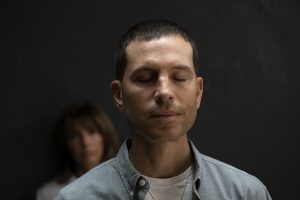 When Jeff was new to recovery, he wrote: This is the first year that my New Year’s resolution is crystal clear: contribution. I need to give back in bigger, more consistent ways – roll up my sleeves and offer my time and experience to the people around me. The Big Book says, “To keep what we have, we need to give it away.”
When Jeff was new to recovery, he wrote: This is the first year that my New Year’s resolution is crystal clear: contribution. I need to give back in bigger, more consistent ways – roll up my sleeves and offer my time and experience to the people around me. The Big Book says, “To keep what we have, we need to give it away.”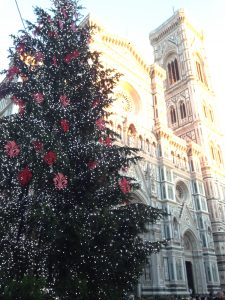 I remember well the Christmas when my son didn’t come home: During the holidays of 2006, when Jeff didn’t come home for our large Italian family gatherings, no one knew what to do or say. Grandparents, uncles, aunts, cousins, and friends didn’t know whether to ask about my addicted son or whether it would be kinder to leave him out of the conversation. At Christmas Eve Mass, my older brother bent toward me and asked softly, “How’s Jeff?” I swelled with tears, tried to speak, but no words came. He nodded and turned toward the altar. I kept my head down and prayed.
I remember well the Christmas when my son didn’t come home: During the holidays of 2006, when Jeff didn’t come home for our large Italian family gatherings, no one knew what to do or say. Grandparents, uncles, aunts, cousins, and friends didn’t know whether to ask about my addicted son or whether it would be kinder to leave him out of the conversation. At Christmas Eve Mass, my older brother bent toward me and asked softly, “How’s Jeff?” I swelled with tears, tried to speak, but no words came. He nodded and turned toward the altar. I kept my head down and prayed.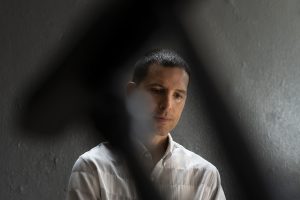 A mom wrote to me: We must break the stigma and shame in order to bring addiction out of the shadows. We need to shine light into our deepest wounds in order to heal. Silence is violence against the truth. Love is the answer.
A mom wrote to me: We must break the stigma and shame in order to bring addiction out of the shadows. We need to shine light into our deepest wounds in order to heal. Silence is violence against the truth. Love is the answer.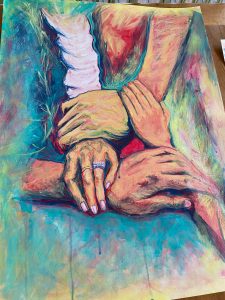 A dad wrote to me: After 21 years of addiction, my son told me that during his darkest days he knew his family loved him and would welcome him back into the family when he decided to change his life. He told me that while he was working his 12 Steps, this knowledge – that home would stay close – is what gave him hope for the future. Never give up!
A dad wrote to me: After 21 years of addiction, my son told me that during his darkest days he knew his family loved him and would welcome him back into the family when he decided to change his life. He told me that while he was working his 12 Steps, this knowledge – that home would stay close – is what gave him hope for the future. Never give up!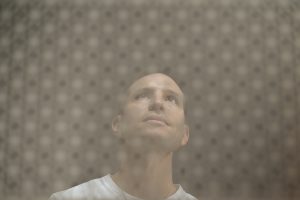 A mom wrote to me: Just as our children need to learn how to live in recovery, so do we. We can’t look back, and we must look forward. Using the tools we now have, let us be a beacon of light so our children know where we are when they’re ready.
A mom wrote to me: Just as our children need to learn how to live in recovery, so do we. We can’t look back, and we must look forward. Using the tools we now have, let us be a beacon of light so our children know where we are when they’re ready.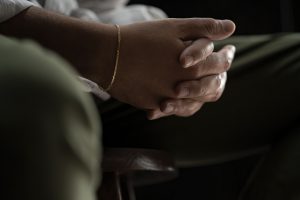 The Japanese Philosopher Diasaku Ikeda tells us: Hope is a flame that we nurture within our hearts. It may be sparked by someone else – by the encouraging words of a friend, relative, or mentor – but it must be fanned and kept burning through our own determination.
The Japanese Philosopher Diasaku Ikeda tells us: Hope is a flame that we nurture within our hearts. It may be sparked by someone else – by the encouraging words of a friend, relative, or mentor – but it must be fanned and kept burning through our own determination.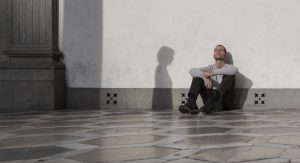 A mom wrote to me: I only know that to keep on loving is something one never regrets. I only know that hope and prayer work, even if prayers are not answered as we hope. I only know that finding a community can help us do more than survive. There we can find courage when we are most afraid, and there we can find a kind of grace and peace when we most need it.
A mom wrote to me: I only know that to keep on loving is something one never regrets. I only know that hope and prayer work, even if prayers are not answered as we hope. I only know that finding a community can help us do more than survive. There we can find courage when we are most afraid, and there we can find a kind of grace and peace when we most need it.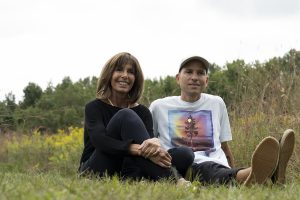 A mother wrote to her son:
A mother wrote to her son: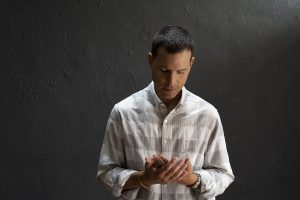 Therapist Francis Weller writes: Grief and loss touch us all, arriving at our door in many ways. It comes swirling on the winds of divorce, the death of someone dear, as an illness that alters the course of a life. Left unattended, these sorrows can seep underground, darkening our days. This requires finding meaningful ways to speak of sorrow. It requires that we take up an apprenticeship with sorrow. Learning to welcome, hold, and metabolize sorrow is the work of a lifetime.
Therapist Francis Weller writes: Grief and loss touch us all, arriving at our door in many ways. It comes swirling on the winds of divorce, the death of someone dear, as an illness that alters the course of a life. Left unattended, these sorrows can seep underground, darkening our days. This requires finding meaningful ways to speak of sorrow. It requires that we take up an apprenticeship with sorrow. Learning to welcome, hold, and metabolize sorrow is the work of a lifetime.
4 Comments.
View Comments | Leave a Comment